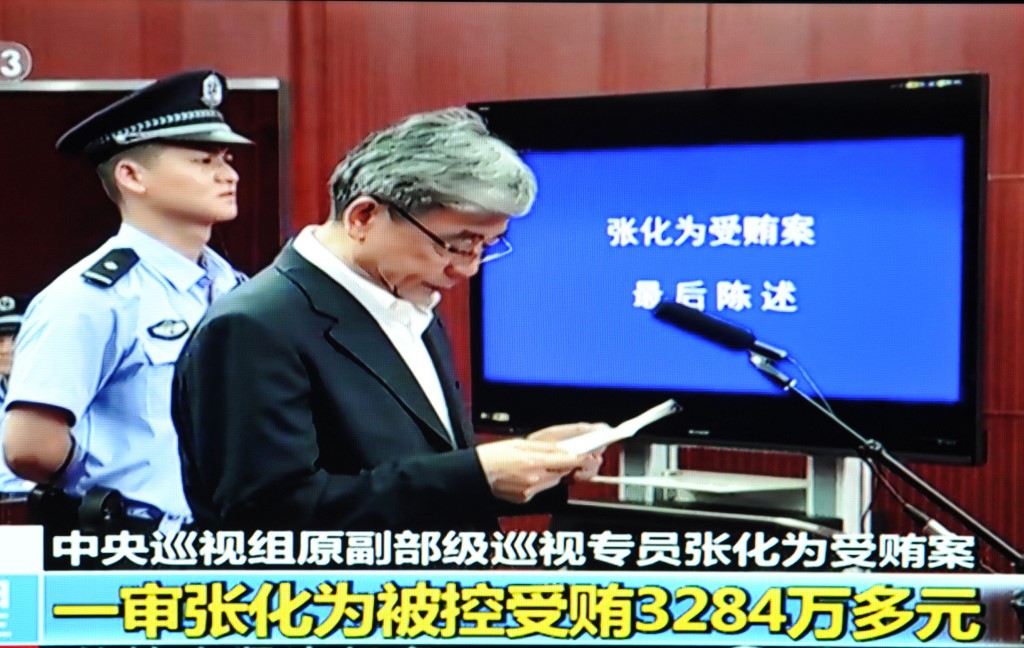(ATF) The latest amendments to China’s criminal law raise penalties for fraudulent issuance of stocks and bonds and violating rules on disclosure and non-disclosure of important information. It also clarifies the responsibility of the controlling shareholder and actual company controllers, and increases costs for people who violate laws and regulations in the capital market.
The draft of Criminal Law Amendment (11) was submitted to the Standing Committee of the National People’s Congress (NPC) for deliberation on Sunday June 28. This means that China’s current criminal law has received its latest revision since it was comprehensively revised after being upgraded several times in 1997.
The draft involves six key aspects:
# First, to increase the prevention and punishment of work safety crimes;
# Second, to improve the provisions for the punishment of food and drug crimes;
# Third, to improve the provisions for the crime of disrupting the financial order;
# Fourth, to strengthen the criminal law of enterprise property rights protection;
# Fifth, to strengthen the public health criminal law guarantees;
# Sixth, to maintain socialist core values, increase punishment for environmental pollution crimes, plus other modifications and improvements.
There have long been calls to increase the penalties for people who violate laws and regulations in the capital market. The Securities Law has been amended to greatly increase the deterrent effect on related behaviours.
There have also been appeals for a joint revision of the Criminal Law and Company Law, to intensify the fight against fraud. Wang Jianjun, a deputy in the NPC and chairman of the Shenzhen Stock Exchange, has continuously called for increased of penalties for fraudulent issuance over the years. During the two sessions this year, Wang Jianjun proposed that the crime of fraudulent issuance be rated as a “crime of financial fraud” with a maximum penalty of life imprisonment to deter offenders.
‘Crackdown needed on criminal liability’
Tang Xin, a professor at the School of Law of Tsinghua University, told the Securities Times that both civil and criminal responsibility need to be gradually enhanced. At present, attempts have just begun in the field of civil liability, such as implementing a model litigation system, a multiple dispute resolution mechanism, and other reforms.
Chinese state prosecutions have a famous 99.9% success rate, but many say this matter needs adjustment. The criminal liability system is not included in the Securities Law and cases must now be referred to criminal law courts. In this way, it is necessary to jointly consider the docking of relevant provisions of the Securities Law, the Company Law and the Criminal Law. “If we can coordinate the revision of the Criminal Law, we may be able to increase the crackdown on criminal liability,” the professor said.
The draft also increased punishments for illegal fundraising crimes – in view of the fact that criminals are engaged in illegal fundraising via the Internet under the guise of “Internet finance” schemes, which seriously disrupt the economic and financial order and greatly infringe on people’s property. So, the maximum penalty for illegally taking public deposits was raised from 10 years to 15 years.
The draft summarises the practical experience of the fight to “black out evil”, saying it will use violence – “soft violence” and other means to stop debt collection by loan sharks in regard to debts that are not protected by law. It will make this practice a crime and strictly punish illegal debt collection.
In order to further strengthen the protection of enterprise property rights and optimise the business environment, the draft strengthens the legal protection of business property. It also increases penalties for crimes against private property that occur within private enterprises.
It also stipulates that if misappropriated funds are returned before a person is prosecuted, their punishment may be reduced.
In addition, the draft strengthens criminal laws linked to public health, revising crimes that impede the prevention and treatment of infectious diseases, and incorporates infectious diseases such as the coronavirus and infectious disease management measures into the scope of this crime.
























